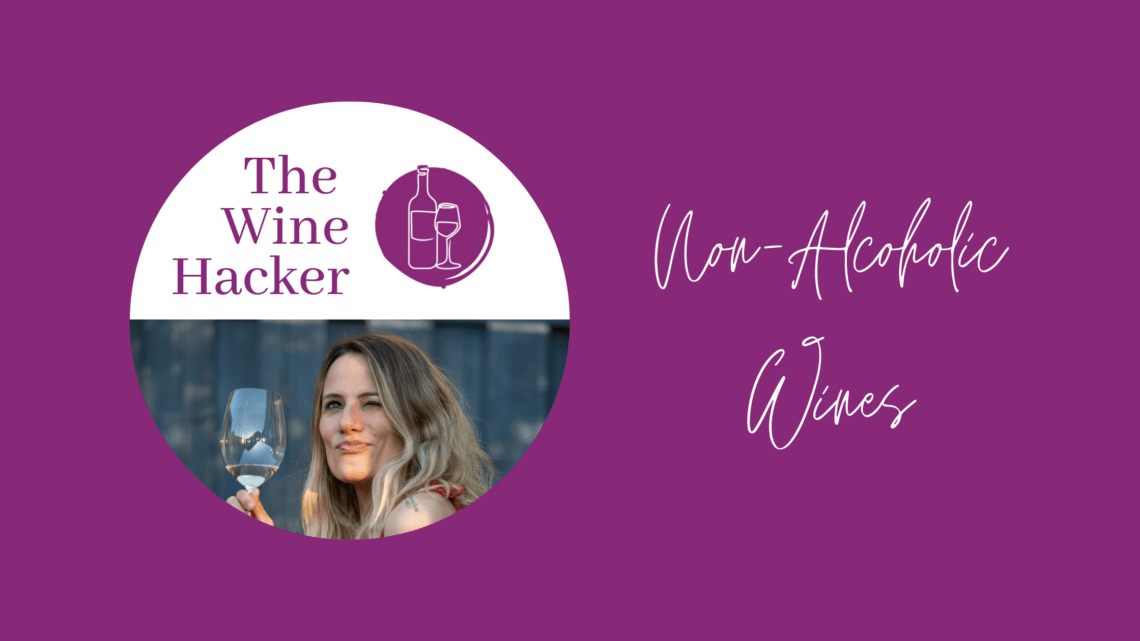This week on #TheWineHacker we are talking about alcohol free wines! We sent through some questions to our Wine Hacker Sara, aka The Wine Informer, to see what her thoughts were on the matter.
Why is alcohol-free wine becoming so popular?
There are various reasons why non-alcoholic wines are gaining traction, especially in Australia, America and England, where it is becoming the fastest-growing “beverage category”. This is likely due to the fact these are countries that associate a lot of lifestyle and pleasure with alcohol.
Non-alcoholic wines can be a lifeline for those who want to enjoy a bottle of wine, but don’t want to consume alcohol due to health, pregnancy, religion, and lifestyle. The phenomenon of non-alcoholic wine is also linked to more serious problems that unfortunately are on the agenda: alcohol abuse, domestic violence and related social disorders.
At the same time “millennials” are very sensitive about diet and their body’s well-being. This has presented a different approach to consuming alcoholic beverages. In Europe, for example, it has been established that 29% of young people between 18 and 24 years old do not consume alcohol, or in limited amounts compared to my generation. Therefore, it is not surprising that Australia is one of the countries where this trend is developing exponentially, supported by awareness campaigns on controlled alcohol and alcohol taxation.

Sara, author of this article a.k.a The Wine Hacker and The Wine Informer on Instagram
What is the target market for alcohol-free wine?
Non-alcoholic spirits are gaining more and more supporters as a result of lifestyle preferences, a performance-oriented society and the desire to live healthily. This trend is expected to continue, and well-being is a strong selling point for this category.
Wines with low or no alcohol content are especially good for health, diet and driving license points.
Large international supermarket chains (for example, Aldi as well as IGA, Woolworths etc.) have started putting bottles of non-alcoholic wine on their shelves, recording an increase in sales of these products.
And remember, the trend doesn’t just include wines, but non-alcoholic beers and cocktails. It creates a sense of inclusion for those who elect not to drink alcohol.
How is alcohol-free wine made?
A method in use for the production of non-alcoholic wine is the separation and removal of alcohol by isolating the alcoholic components with technological machinery that is becoming more and more efficient every day.
The Reverse Osmosis process, Nanofiltration and Spinning Cone all work in the same way obtaining a product with low or no alcohol.
The use of selected yeast helps convert sugar into alcohol very slowly, allowing the wine to acquire secondary flavours and aromas without adding a high amount of alcohol.
But these are expensive processes, which is why the prices of these no-alcohol beverages are high and only big companies can afford this subcategory.
The biggest problem, obviously linked to scepticism on the part of the consumer, is the fact that the absence of alcohol in our “wine” can create an unbalanced product. Obviously, this is not a novelty in the wine scene, some alcoholic products are also rough and unbalanced, but it is not surprising that many winemakers are following the trends and social demands of these new wines. Young and fresh marketing campaigns, packaging and NO alcohol evenings are raising awareness for more and more consumers who prefer to drink alcohol-free wines. For example, I recently attended Perth’s first alcohol free party organized by https://freespiritdrinkco.com.au/, and I was impressed by the number of guests, which included various demographics.

Does it have the same flavour, body and other textural characteristics? Is it still varietal or terroir-driven?
If I have to be honest, the ones I have tried so far have not… often, these wines smell and taste like fruit juice. Here the alcohol produced during fermentation is separated from the liquid by distillation. When heated, the alcohol evaporates, as do most of the aromas.
And for this reason, I believe that there will never be real room for non-alcoholic wines for true wine lovers. You know, maybe they are the right alternatives for “dry months” or other personal reasons. But I don’t think true aficionados find satisfaction in non-alcoholic wines. Let’s say that the target is not people looking for terroir and other factors. There is also a great debate on naming these beverages, as the wine that we all know has well-defined characteristics that are not found in these options.
What are some free alcohol wine brands you have tried recently?
In September, all my Mondays’ posts will be dedicated to non-alcoholic wines that I tried and enjoyed as an option. I will reveal my picks and advice to you in September on my Instagram account.

Sarah Rusbatch the founder of Free Drink and Co.
What do you think the future of the alcohol-free wine movement is?
The concept of well-being is changing our lifestyles, and this trend goes hand in hand with it.
We will have a #girlswinechat on Wednesday, September 8 at 6 pm Perth Time on my Instagram profile with Sarah Rusbatch the founder of Free Drink and Co. a Perth business offering a wide range of non-alcoholic wines, beers and spirits. And therefore we will have a lot of interesting questions! If you want to know more about this trend don’t miss it!
Sara, The Wine Informer
You can find more from Sara through her website, The Wine Informer, and her Instagram, @thewineinformer.
Humans have been creating wine for thousands of years, so shouldn’t it be easier to understand? Well, that’s where The Wine Informer comes in. Sara, The Wine Informer explains wine and all its various forms in simple step-by-step terms to help you taste and discover the details. Throughout her blog, articles on the Cellr Blog and Instagram, Sara combines her passions of wine, storytelling, education, branding and marketing to bring you content that is both captivating and carefree to help you along your wine journey.

